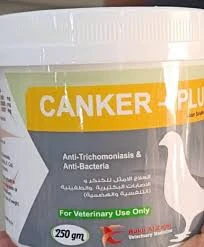
Nov . 09, 2024 17:16 Back to list
Understanding Coccidia in Custom Chicken Farming for Optimal Health and Growth
Custom Chicken Coccidia Understanding and Managing Eimeria Infections
Coccidiosis is a common and serious parasitic disease in poultry, mainly caused by the genus Eimeria. Chickens, particularly young birds, are the most affected. The disease can lead to significant economic losses in the poultry industry due to reduced growth rates, decreased feed efficiency, and increased mortality. Understanding coccidia, the life cycle of this parasite, and effective management practices are essential for any poultry farmer aiming to maintain the health and productivity of their flock.
What are Coccidia?
Coccidia are microscopic protozoan parasites that inhabit the intestinal tract of chickens. There are several species of Eimeria that infect poultry, with Eimeria tenella being one of the most pathogenic. These organisms reproduce within the gut lining, leading to cell destruction, inflammation, and a decrease in nutrient absorption. Symptoms of coccidiosis may include lethargy, poor growth, blood in feces, and, in severe cases, sudden death.
Life Cycle of Coccidia
The life cycle of Eimeria is complex and has both asexual and sexual reproduction stages. It begins when chickens ingest oocysts, the resilient eggs of the parasite, found in contaminated feed or water. Once ingested, the oocysts hatch in the intestine, releasing sporozoites that invade intestinal cells and multiply. This stage is known as the asexual phase. After several cycles of reproduction, some parasites develop into sexual stages, forming new oocysts that are shed in the feces. This continuous cycle enables coccidia to proliferate rapidly within a flock, making control measures critical.
Custom Management Strategies
Managing coccidiosis requires a combination of good management practices, biosecurity measures, and potentially medicated feed or water treatments. Here are several strategies that can be tailored to your specific farm needs
custom chicken coccidia

1. Biosecurity Measures Implement strict biosecurity protocols to prevent the introduction of coccidia to your flock. This includes controlling access to bird areas, routine cleaning and disinfection of equipment, and minimizing contact with wild birds and pests that could carry the oocysts.
2. Proper Nutrition Providing a balanced diet enriched with vitamins and minerals can improve overall chicken health and resilience against infections. Ensuring adequate protein can support the immune system, aiding in quicker recovery from minor infections.
3. Rotation of Pastures If your chickens are raised on pasture, rotating them to fresh grounds can significantly reduce coccidia exposure. This practice disrupts the life cycle of the parasites by limiting their ability to accumulate in the environment.
4. Use of Coccidiostats In certain production systems, using medications known as coccidiostats can help manage coccidia. These feed additives do not kill the parasites but inhibit their development, thereby reducing the severity of infections. Consult with a veterinarian for appropriate coccidiostat use and following withdrawal periods for meat and egg production.
5. Vaccine Development There is ongoing research into developing effective vaccines against coccidiosis. While vaccines are not universally available, they could provide a future avenue for preventing coccidia infections without reliance on medicated feeds.
6. Regular Monitoring Regularly monitor your flock for signs of coccidiosis and conduct fecal examinations if necessary. Early detection can lead to quicker intervention, reducing the spread within your flock.
Conclusion
Customizing your approach to managing chicken coccidia can make a significant difference in the health and productivity of your poultry. Integrating good management practices, coupled with biosecurity measures and potential medication, forms the cornerstone of effective coccidiosis prevention strategies. As research advances, new methods such as vaccination may provide additional tools for poultry farmers. By staying informed and proactive, you can protect your birds from the threats posed by coccidia and ensure a thriving poultry operation.
-
Ascariasis Treatment Solutions Trusted Manufacturer & Supplier
NewsMay.12,2025
-
Rumen Obstruction Solutions for Cattle & Sheep Trusted Manufacturers
NewsMay.12,2025
-
Feces Stick to the Anus Solutions - Anti-Stick Care Products Manufacturer
NewsMay.11,2025
-
Cow Castor Poisoning Solutions Reliable Manufacturers & Suppliers
NewsMay.11,2025
-
Osteoporosis Solutions Trusted Manufacturer & Supplier Bone Health
NewsMay.10,2025
-
Avian Pox Yeast Culture Reliable Manufacturers & Trusted Suppliers
NewsMay.10,2025




